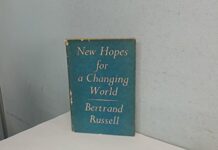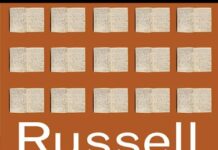
Ebook Info
- Published: 2009
- Number of pages: 192 pages
- Format: EPUB
- File Size: 0.28 MB
- Authors: Bertrand Russell
Description
Bertrand Russell was renowned for his provocative views on education. Considered an educational innovator, Russell attempted to create the perfect learning institution. Despite the failure of this practical vision, it did not stop him from continuing to strive towards inventing and arguing for a system of education free from repression. In Education and the Social Order, Russell dissects the motives behind educational theory and practice, and in doing so lays out original and controversial arguments for the reformation of the education of the individual.
User’s Reviews
Editorial Reviews: About the Author Bertrand Russell (1872-1970). A celebrated mathematician and logician, Russell was and remains one of the most genuinely widely read and popular philosophers of modern times.
Reviews from Amazon users which were colected at the time this book was published on the website:
⭐Reading this book was a strange and illuminating experience. On the one hand, strange, because so many of Russell’s thought came to roost into my mind and seemed so natural and so clear to me that I felt I had been thinking them all my life. On the other hand, illuminating, because so many of Russell’s ideas were so unfamiliar and odd, and yet when put all together it is as if someone is turning on the light for the first time. Russell strikes at the heart of all that cripples education and development of the whole person, by mercilessly pointing out that the existence of the debilitating agents and uncovering the way they undermine human growth and potential. He does not stop there, however. He also praises those unique aspects of education that make us stronger, thoughtful, more critical — those aspects, as he says, may yet save our civilization. The book is slightly outdated in part, in that there is a whole, in-depth chapter on education in the USSR, but this is nonetheless interesting from a historical aspect. The crux of this book, however, is timeless, invaluable, and well the worth the read.
⭐So clear. The points he makes are so eye opening. It’s ridiculous that anyone can write this clearly about any subject
⭐Excellent
⭐In this hard-hitting, superbly sarcastic/cynical, and still highly relevant text, B. Russell gives his outspoken view on `free’ education and its inveterate enemies, the State (government) and the Church (religion).Individualism v. CitizenshipThere is a huge cleavage between those who consider education primarily in relation to the individual psyche, and those who consider it in relation to the community.The cultivation of the individual mind is absolutely not the same thing as the production of a useful citizen. Nonetheless, it may be held that pupils will ultimately be better citizens if they are first aware of all their potentialities as individuals before they descend into compromises and practical acquiescences of the life of the polis. Education in citizenship is shortsighted, because it will stunt the individual in order to make him a convenient tool in the hands of the government.FreedomFreedom in education (= free speech) is the most difficult element to secure in the polis. State and Church are implacable enemies of both intelligence and real virtue. Moreover, any creed is harmful in education when exempt from intellectual, scientific scrutiny.Both institutions understand all too clearly that a world of real human beings would make short work of the existing social system, with its wars, its oppressions, its economic injustices, its horror of free inquiry and its superstitious moral code.Government (the State)All the governments of the world adopt elaborate methods of concealing truths which they consider undesirable. They inflict various forms of penalty upon those who spread knowledge which is thought bad for them. Governing elites are fundamental hypocrites (when the Transvaal was found to contain gold, the British invaded it. Lord Salisbury assured the nation that `we seek no goldfields’!)Patriotism and Nationalism imply that the most important duty of young men is homicide. Also, the citizens who shout for the flag are, in general, unaware of the sinister forces that have led them to do so.Religion (the Church)Churches demand assent to propositions which no unbiased person can believe, and to a morality which is so cruel that it can only be accepted by those inhibited by dogma. One example: the Catholic Church holds that a priest can turn a piece of bread into the Body and the Blood of Christ by talking Latin to it.Religion is a conservative force and preserves much of what was bad in the past. It supported slavery and now capitalistic exploitation. It minimizes such evils as poverty and disease, on the ground that they belong only to this earthly life. Its sex education makes happiness in adult life impossible.Ultimately, Bertrand Russell ask the crucial question: Is a man to be condemned as immoral and subversive, because he wishes to substitute all those sinister elements in education by intelligence, sanity, kindliness and a sense of justice?Bertrand Russell’s monumental free speech still towers mightily above the mass of corrupt propagandists and shamelessly biased observers of the actual political and economic scene (a screen for those sinister interests which B. Russell lambastes mercilessly in this text).A must read.
⭐In this hard-hitting, superbly sarcastic/cynical, and still highly relevant text, B. Russell gives his outspoken view on `free’ education and its inveterate enemies, the State (government) and the Church (religion).Individualism v. CitizenshipThere is a huge cleavage between those who consider education primarily in relation to the individual psyche, and those who consider it in relation to the community.The cultivation of the individual mind is absolutely not the same thing as the production of a useful citizen. Nonetheless, it may be held that pupils will ultimately be better citizens if they are first aware of all their potentialities as individuals before they descend into compromises and practical acquiescences of the life of the polis. Education in citizenship is shortsighted, because it will stunt the individual in order to make him a convenient tool in the hands of the government.FreedomFreedom in education (= free speech) is the most difficult element to secure in the polis. State and Church are implacable enemies of both intelligence and real virtue. Moreover, any creed is harmful in education when exempt from intellectual, scientific scrutiny.Both institutions understand all too clearly that a world of real human beings would make short work of the existing social system, with its wars, its oppressions, its economic injustices, its horror of free inquiry and its superstitious moral code.Government (the State)All the governments of the world adopt elaborate methods of concealing truths which they consider undesirable. They inflict various forms of penalty upon those who spread knowledge which is thought bad for them. Governing elites are fundamental hypocrites (when the Transvaal was found to contain gold, the British invaded it. Lord Salisbury assured the nation that `we seek no goldfields’!)Patriotism and Nationalism imply that the most important duty of young men is homicide. Also, the citizens who shout for the flag are, in general, unaware of the sinister forces that have led them to do so.Religion (the Church)Churches demand assent to propositions which no unbiased person can believe, and to a morality which is so cruel that it can only be accepted by those inhibited by dogma. One example: the Catholic Church holds that a priest can turn a piece of bread into the Body and the Blood of Christ by talking Latin to it.Religion is a conservative force and preserves much of what was bad in the past. It supported slavery and now capitalistic exploitation. It minimizes such evils as poverty and disease, on the ground that they belong only to this earthly life. Its sex education makes happiness in adult life impossible.Ultimately, Bertrand Russell ask the crucial question: Is a man to be condemned as immoral and subversive, because he wishes to substitute all those sinister elements in education by intelligence, sanity, kindliness and a sense of justice?Bertrand Russell’s monumental free speech still towers mightily above the mass of corrupt propagandists and shamelessly biased observers of the actual political and economic scene (a screen for those sinister interests which B. Russell lambastes mercilessly in this text).A must read.
⭐As the book was written over 100 years ago it is dated in many respects but Russell asks all the right questions and the chapters are the chapters we expect to see in a book on education. There is even some discussion on gifted students putting Russell ahead of his time and he was to start up a school of his own putting many of his ideas into practice. However it should be stated that he was anti state and anti church. He appears in one chapter on soviet Russia lamenting the interference of sovereign states in the education nprocess and he seems to not only be upset at Marxian orthodoxy which he finds outdated but patriotic ideas as they make their way into our education system and still later religious orthodoxy as it makes its way into our education system. He wants to purify education to form intellectual liberal graduates and that seems to be why he takes the views he does but religious education is quite well regarded these days and have produced high quality graduates argueing against much what he says though still the idea of purifying education is a good idea and theres a chapter on heredity which is excellent and needs to be updated in our new scope on education. Recommended.
⭐Russel does not need my endorsement. He is so tall in his thought process. I love this book. Anybody in the field of education for the love of it, must read this book to get more guidance.
⭐meet my expectations
Keywords
Free Download Education and the Social Order (Routledge Classics) 1st Edition in EPUB format
Education and the Social Order (Routledge Classics) 1st Edition EPUB Free Download
Download Education and the Social Order (Routledge Classics) 1st Edition 2009 EPUB Free
Education and the Social Order (Routledge Classics) 1st Edition 2009 EPUB Free Download
Download Education and the Social Order (Routledge Classics) 1st Edition EPUB
Free Download Ebook Education and the Social Order (Routledge Classics) 1st Edition





